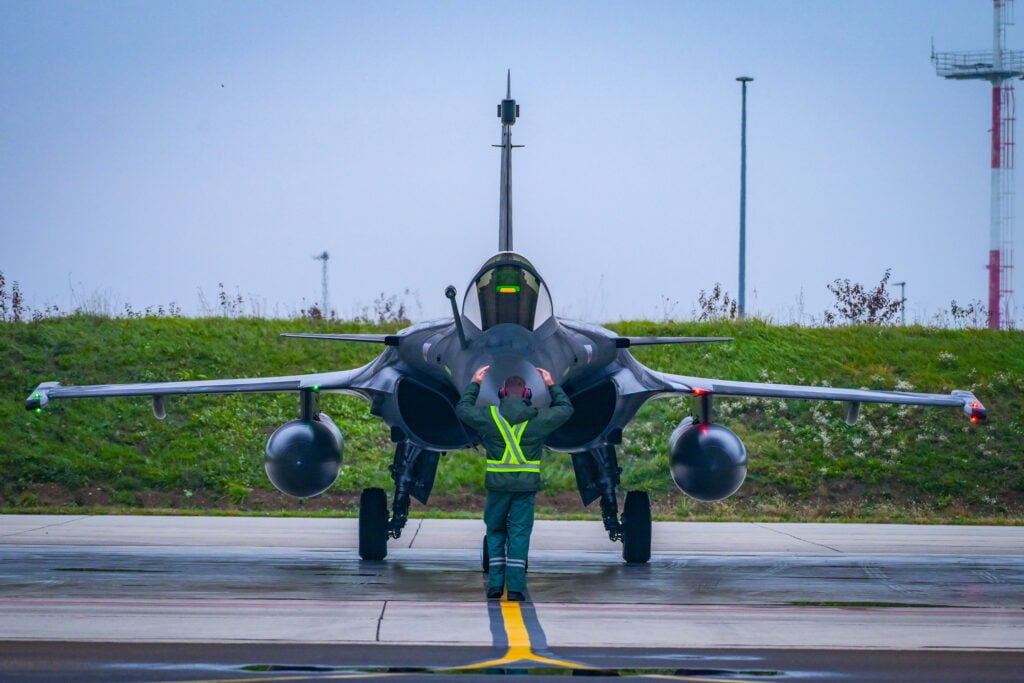The Croatian Air Force continues to enhance its military capabilities with the recent delivery of its seventh Rafale combat aircraft from France, as part of a larger acquisition of 12 pre-owned jets following a foreign military sale agreement signed in 2021. This transition marks a significant shift for Croatia, which has been operating Soviet-made MiG-21 supersonic jets since gaining independence in 1991.
With this latest handover, Croatia’s defense agency has confirmed that deliveries will persist at a pace of one Rafale jet per month until the second quarter of the following year. Croatian Air Force Commander Maj. Gen. Michael Križanec expressed confidence in the project, stating, “We do not deviate even a millimeter from our plans and set goals, which gives us additional confidence in the success of the entire project.” He further emphasized the importance of this development for both the Croatian Air Force and national security, signaling the country’s readiness to adapt to forthcoming challenges.
The decision to procure the Rafale jets was made in 2021 when Croatia opted for the French aircraft over alternatives such as American and Israeli F-16 Fighting Falcons, as well as the Swedish Jas 39 Gripen. The initial arrival of the Rafale aircraft took place two years later at Mont-de-Marsan Air Base, with five additional units delivered by April of this year.
In addition to the aircraft themselves, the broader procurement project encompasses associated equipment, training, and spare parts to support the fleet for a duration of three years. Croatian Defence Minister Ivan Anušić highlighted the unprecedented investment in the Croatian military, noting that it not only includes the acquisition of multi-purpose combat aircraft but also extends to Bayraktar unmanned aerial systems, state-of-the-art Leopard 2 A8 tanks, and the advanced HIMARS missile system.
“Our doctrine is deterrence,” Anušić stated. He expressed that a well-equipped and modern Croatian army is pivotal in dissuading any potential threats to the nation’s territorial integrity, especially amid the current global and European security environment.
The Rafale fighter, manufactured by Dassault Aviation, is notable for its impressive specifications. It measures 15 meters in length and has a wingspan of 48 meters. The aircraft can be armed with a variety of weaponry, including autocannons and assorted air-to-air and air-to-surface missiles. It features advanced avionics, including an electronic warfare suite, radar, and a long-range infrared search and track system. Powered by twin Snecma M88 turbofan engines, the Rafale can reach speeds of up to Mach 1.8, service ceilings of 15,835 meters, and boasts an operational range of 3,700 kilometers.
This ongoing modernization of the Croatian Air Force reflects a strategic commitment to enhancing national defense capabilities in response to evolving regional security challenges.





